The Tragic Tale of Maudlin Street Sanitarium
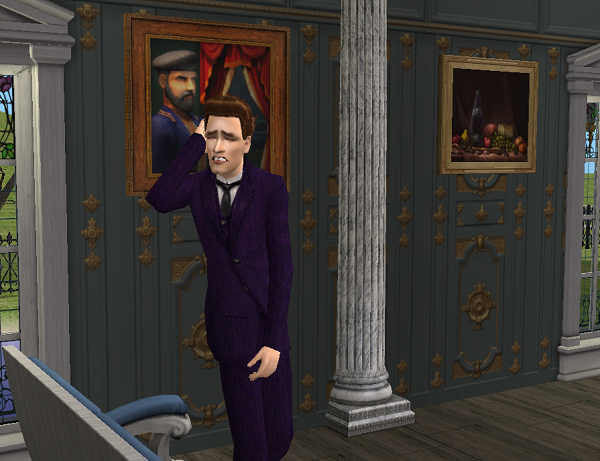
The last night on Maudlin Street
Goodbye house, goodbye stairs
I was born here and I was raised here
And I took some stick here
--Morrissey, "Late Night, Maudlin Street," Viva Hate
Manchester, 1994
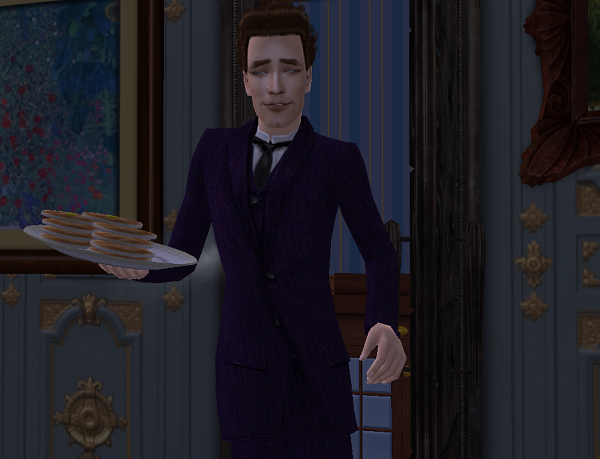
I was just finishing up an engagement in my old hometown--ah, the applause! I had gathered my things, and marched out of the back of the venue. It's difficult to walk the streets when one has such a face as I. Never mind that. The important fact of the matter is that I saw a stray dog on the street. You may or may not know that I (like most sensible people) have a great love for animals. On that night, I saw a stray dog. Well can you imagine how my heart broke for the poor creature--and so I chased after him.
For several minutes we ran, until the dog slipped into an alley. Splendid! I thought. Now I may more easily grab up the beautiful creature and take him (or her) home. But such was not the case. As the dog backed into the wall, it actually went through it. I blinked several times, confused, then decided to test the wall myself. I felt nothing; just air. So rather moronically, I stepped through the barrier.
And landed in turn of the century England--specifically, 1892.
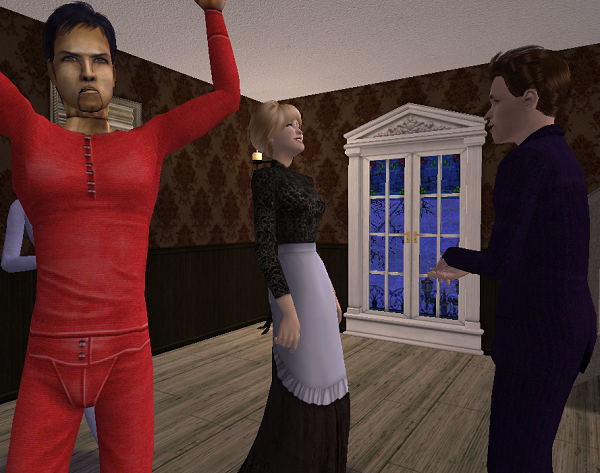
Well, thought I--this will be splendid! I can finally visit Oscar Wilde, the hero of my very earliest years. But such was not to be the case. When I landed three minutes later on the grounds of an exquisite building, I was soon to know true melancholy.
I had landed on the doorstep of Maudlin Street Sanitarium.
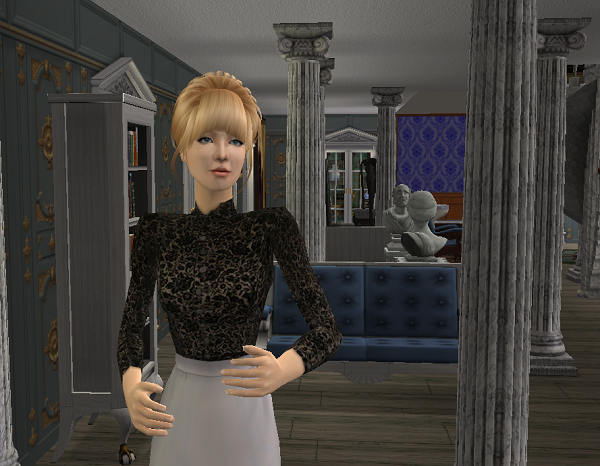
I was greeted with the sight of the kindly Emma Gladstone, a family's maid who had been sent here on behest of her employers. She was loose of tongue, so I was quickly informed of the status of the residents and about the Sanitarium itself.
"Oh sir!" she exclaimed, a pathetically eager expression on her face. "I'm so glad you're here. You see, I do the work for the 'ouse, everyone else being, well, fancy and all. But it's lovely to see a new face! And you'll be spending a lot of time here--I've been here two years now."
I said nothing. What could I say? I pitied her, I did. And she'd make a good subject for a bit of song, I think. I'll keep it to myself, for now.
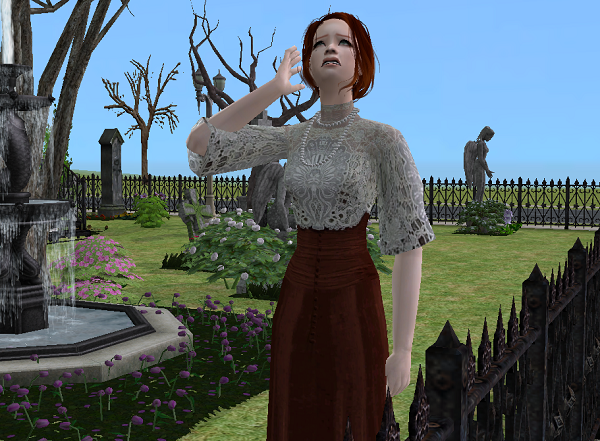
Adelaide Hemmingway--yes, with two m's--was the next occupant to greet me. I found her distastefully flirtatious if not high spirited. She greeted me with a rather lewd smile, and proceeded to go on at length about myself. She claims she is a medium, which explains why her husband wanted to be rid of her, and so sent her here, along with a hefty sum.
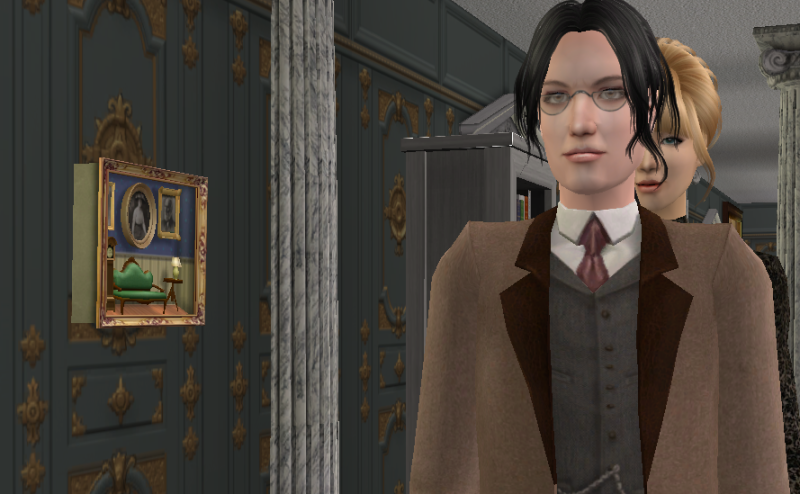
Luckily the ladies were not the only people inhabiting this strange structure. There were several gentlemen, one of whom is a Professor of something--I don't know what. It was difficult to discern through his thick German accent, but I am under the impression that his name is Goethe and that he was brought to this institution on account of being, well, foreign. I was going to say something appropriately politically correct, but then I realized I didn't have to worry about my reputation anymore.
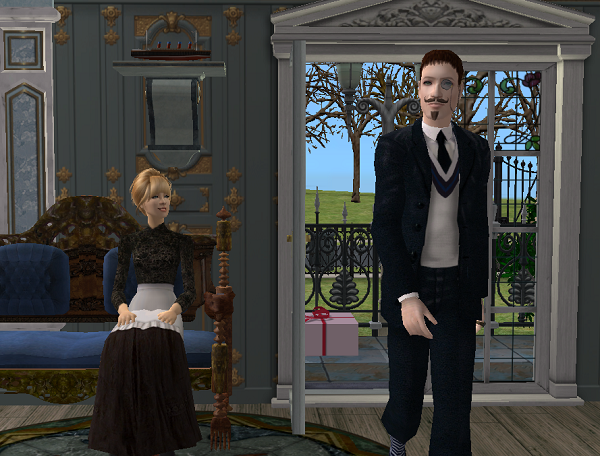
When Professor Goethe finally stuttered out of the room, a certain Sir Plumpington took his place. A stout man, Plumpington is (as his title would indicate) of the very minor nobility. Unlike the vacuous creatures who lazily ascend to their titles, Plumpington earned his. He had served in some war or other, and was knighted by Queen Victoria herself.
I'm not sure what to think of him. A part of me finds him repulsive, due to the odor he gives off, as well as the title with the air of superiority. But such things seem to come naturally, once one has gained a position. Plumpington is otherwise friendly, if not a bit absent-minded.
In spite of the friendliness of Plumpington, Goethe (in his way), and Emma Gladstone, there are two women about whom I am very concerned.
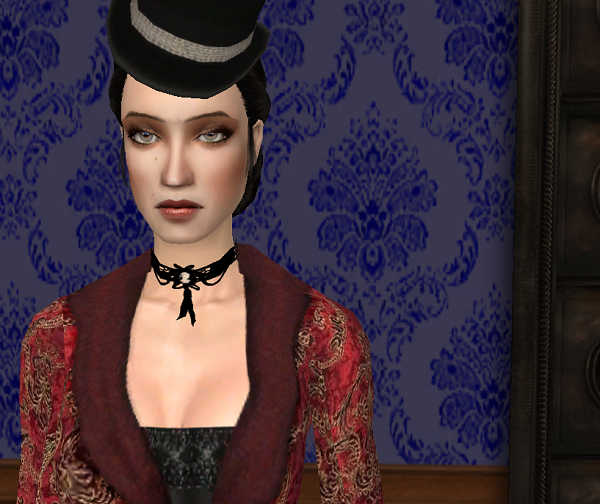
Madame Bourbon is a washed-out Vauxhall actress and singer. She glares at me from across the room, and is very defensive in the subject of, well, herself. As I have ascertained from Emma, Madame was brought here kicking and screaming after she threw rotten vegetables at her own audience (this could be an interesting idea for my own concerts in the future).
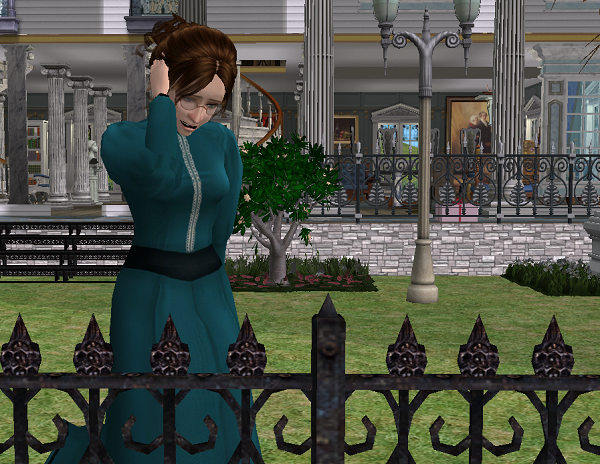
But her irritability is nothing in comparison to Sarah Horatio. When I met her by the cemetery gate, she lowered her eyes. I thought we'd get on well, because I remember being extraordinarily shy at one point. I cannot pinpoint her age--she looks both young and old in turns. But there is something peculiar about her. None of the other inmates will tell me what brought her here. Even Emma, when quizzed, has said simply that she will "tell me later."
I will keep an eye on her. If they will not speak of her actions--and they spoke of the volatile Bourbon's actions--then it must be dire indeed.
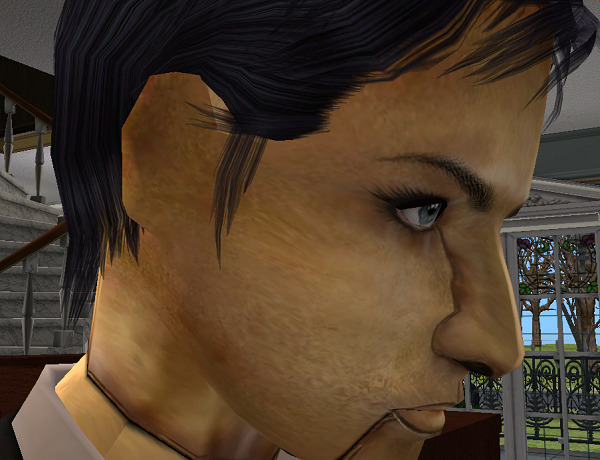
I might have been able to deal with even Sarah Horatio, as odd as she is. But I turned, walked through the opulent foyer, and saw something which gave me a turn. Sitting at the piano was a brass and bronze android. it must have been wearing a wig of sorts, because it had very neat hair. As it turned in its jerky fashion, to look at me, my heart skipped several beats. I had seen that face before, though cast in flesh rather than metal. It couldn't have been...
Gary Numan was a synthpop star of the late seventies and early eighties. He faded out when he tried to become too experimental, and frankly I fear that for myself. I saw his face etched into that android. The resemblance was striking. But why, why would such a machine exist--and here?!
When I asked him his name, he replied in a strange voice, "Numanoid 4.0 at your service." I quickly made my escape. No-one knows why the android exists here, only that it does and has done for the past two months.

I'm hoping to extract myself from this less than optimal situation. But I have to admit being somewhat terrified. They all look to me as a sort of leader, if not as a butler. Indeed, they gave me a suit to wear. I do look dapper. But how long will I stay here? How long can I stay here?